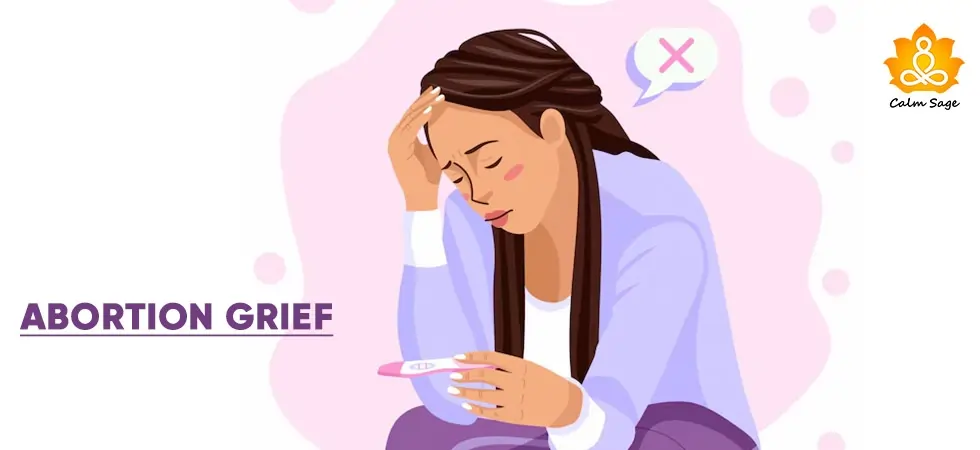Grief Fatigue: What to Do When Grief Makes You Tired

“To weep is to make less the depth of grief.” – William Shakespeare
Living through the loss of a loved one can feel like a huge wave following close behind you and is about to drown you if you stop moving forward. Moving through the loss of a dear one can feel heavy and overwhelming, and before you know it, grief has bled into almost every aspect of your life and relationships, exacting a toll on your mind and body.
While the psychological effects of loss can be emotionally draining, the physical effects of loss can make you feel sluggish and tired. If your grief makes you tired, then you’re not alone.
The sadness and pain we feel when we lose someone or something can be heavy but when this sadness goes on for a while, it can make you feel exhausted and depleted. This emotional exhaustion caused by grief can be called grief fatigue.
What can be done to let go of the burden that is grief fatigue? Are there any ways to mourn even when you’re exhausted?
Let’s take a look…
What is Grief Fatigue?
Grief is the heavy cloud of sadness that hangs over our heads when we go through the loss of a loved one or experience losing something we hold dear in our hearts. When the sadness that comes with the loss doesn’t go away for a long time and lingers in our hearts and minds, it can manifest as physical symptoms of grief such as fatigue.
When this happens, it can make you feel something referred to as “grief fatigue”. Grief fatigue is when you feel tired, worn out, or emotionally drained because you’ve been experiencing the signs and stages of grief for a long time.
Why Grief Makes You Tired?
Imagine yourself carrying a bag filled with stones as you continue to hike up a mountain. Each stone in the bag represents a memory or feeling that you relate to your loss. At first, the luggage is easier to manage, but as time passes, the luggage becomes heavier and heavier. In our case, grief is the luggage you carry. As it keeps piling up with memories and feelings, the weight of grief can make you feel tired – mind and body.
Grief in itself can be emotionally and mentally taxing as it stirs up intense emotions. You may feel sadness, anger, guilt, and even confusion at times. These emotions and feelings can take a toll on your energy, making it difficult to focus on your everyday life, tasks, relationships, and activities you enjoyed in the past.
Psychological effects of grief can also affect our physical health as we work on navigating and living through the loss of a loved one. One of the most common effects that grief can have on your physical health is sleep issues. After the death of a loved one, you may experience anxiety and a change in your routine, which can affect your sleep patterns. Not getting a good night’s sleep can leave your mind and body tired.
Another effect of grief on your body can be hypervigilance. Hypervigilance is a trauma response that can put you on edge. Being on edge all the time can also take a toll on your body and leave you feeling tired after the loss of a loved one.
Some symptoms of grief can also mimic symptoms of depression and post-trauma stress disorder (PTSD), which can make it difficult to distinguish what is causing you to feel exhausted. Prolonged grief disorder is another factor that can leave you feeling tired. Prolonged grief is when your grief symptoms persist for a long time and only become intense as time goes on.
If you’re experiencing chronic fatigue after bereavement, then it is recommended that you speak to a professional therapist or a grief counselor. Only a mental health professional can diagnose prolonged grief disorder.
What to Do When Grief Makes You Tired?
If grief is weighing you down and if grief fatigue seems more and more likely, then here are some tips to help you handle fatigue after loss;
1. Allow Yourself to Grieve
Tell yourself that it’s OK to feel sad and grieve the loss you’re experiencing. It’s also okay to feel tired after grieving someone or something you held dear in your heart. Allow yourself to feel these emotions without judgment. Tell yourself that grieving the loss and feeling what you are feeling is a part of healing.
2. Talk About Your Feelings
To handle grief fatigue, you can also learn to share your feelings with a trusted loved one or a professional grief counselor, if you want. Talking about your grief and how it makes you feel can help ease some of the emotional baggage and make you feel supported and less alone.
3. Find Healthy Outlets For Emotions
You can also take some time and focus on activities that help you express your feelings and emotions better. You can try grief journaling, painting, or writing music dedicated to your loss. These healthy outlets to express your emotions can help you process your grief and make you less emotionally burdened.
4. Practice Self-Care
Pay attention to the signals your body and mind send you when you’re grieving. Try to eat well, get enough sleep, and engage in gentle exercises to keep your mind and body healthy. A healthy body can cope better with the demands of grief. So, make time for self-care even when your grief makes you tired.
5. Create Rituals to Mourn
Another way to handle grief fatigue and process your grief is through creating rituals to honor your loss. You can honor the memory of your loved one to feel comforted and cope with the loss. Create rituals that make you feel connected to the lost loved one and also memorialize their life.
6. Join a Grief Support Group
You can also connect with others going through the same experiences to handle grief fatigue and process your loss. Connecting with others, sharing your experiences, and listening to others’ stories can be comforting. Grief support groups can also offer a safe space to share your feelings without being judged for them.
7. Be Kind to Yourself
Know that healing takes time and there’s no set schedule for grief. Tell yourself that it’s OK to have good days and bad days. When bad days do come, remind yourself to be kind and patient. It might be a tough journey, but with time you can learn to live around the grief and loss.
8. Seek Help, When Needed
Sometimes, grief fatigue can become too much to handle on your own. When grief makes you tired and leaves you feeling too drained to do anything, consider speaking to a therapist or a grief counselor. They can offer guidance and support to move on and live through the experience.
Wrapping Up…
Grief fatigue is when you feel tired, worn out, and emotionally drained. Grief fatigue or grief exhaustion can be a sign that your heart is too big and your loss too heavy. Instead of taking your tiredness as a weakness, take it as a testament to the strength of your love and care for the person or thing you’ve lost.
While the road to recovery from grief can be long and exhausting, know that you have the strength within to heal and find peace. It’s OK to feel sad and it’s OK to ask for help – through trusted loved ones, support groups, or even professionals – when grief becomes too tiring.
You can live through your grief at your own pace. Just remember to be patient and kind to yourself as you process your loss. There’s nothing wrong with what you’re feeling. And if anyone tells you otherwise, remind yourself that everyone’s experiences with grief can vary.
“Grief is like the ocean; it comes on waves ebbing and flowing. Sometimes the water is calm, and sometimes it is overwhelming. All we can do is learn to swim.” – Vicki Harrison
I hope this article helped you understand what grief fatigue is, why grief makes you tired, and how you can live through grief and fatigue. Let me know what you think of this article in the comments below.
Take Care!




















